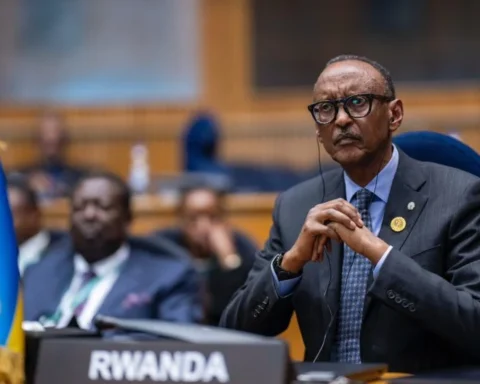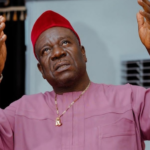Tanzania’s government has revoked the registration of the Glory of Christ Tanzania Church—widely known by its Swahili name, Kanisa la Ufufuo na Uzima—citing serious legal violations and concerns over politically charged preaching.
The church is led by Bishop Josephat Gwajima, who also serves as Member of Parliament for Kawe.
The decision was announced publicly by Emmanuel Kihampa, the Registrar of Civil Societies under the Ministry of Home Affairs, during a press briefing in Dar es Salaam.
“The church has contravened the Societies Act, Chapter 337,” Kihampa stated. “Its leader has been delivering sermons that not only contain political content but are also intended to stir up public dissent against the government. Such behavior endangers national peace and stability.”
Bishop Gwajima, a controversial figure who has combined religious leadership with political activism, has made headlines repeatedly for challenging state authority. Just a day before the deregistration was announced, he held a public rally in Dar es Salaam where he reaffirmed his commitment to speak out against a wave of abductions and enforced disappearances he alleges are being covered up by authorities.
Gwajima’s message—delivered with his usual charisma and emotional energy—resonated with his supporters, who see him as a rare voice of truth in a political landscape where most religious leaders avoid open confrontation with the state. Critics, however, argue that the bishop has repeatedly crossed the line by turning the pulpit into a political platform.
This is not the first time the government has clashed with the bishop. Back in 2017, he faced legal action for alleged defamatory remarks against fellow clerics, though the Kisutu Resident Magistrate’s Court later dismissed the charges after the prosecution failed to proceed with the case.
Gwajima’s church, established over a decade ago, has grown into one of the largest Pentecostal congregations in Tanzania, attracting thousands of followers from across the country and even abroad. Its main sanctuary in Dar es Salaam is often packed with worshippers, many of whom look to Gwajima not just for spiritual nourishment, but also for social and political guidance.
The government’s move to deregister the church has sparked immediate debate on social media platforms like X (formerly Twitter) and Facebook, with reactions split along ideological lines. Some citizens are applauding the government for drawing a legal line between religion and politics, arguing that faith-based institutions must respect the boundaries set by the state. Others view the move as a targeted suppression of religious freedom and an attempt to silence one of the few remaining independent voices.
Also Read; What the BRICS Could Learn from the African Union
Legal analysts have weighed in, suggesting that Bishop Gwajima may challenge the deregistration in court, potentially setting the stage for a landmark case on religious and political rights in Tanzania. If the case proceeds, it could test the limits of the Tanzanian Constitution, particularly provisions related to freedom of religion and expression.
Meanwhile, the Ministry of Home Affairs has maintained that the deregistration process was conducted lawfully, and that all civil societies and religious institutions—regardless of their stature or popularity—must operate within the country’s legal framework.
As the situation continues to unfold, all eyes remain on Bishop Gwajima’s next move, the reaction of his followers, and whether the case will ignite wider calls for reform in how religious freedom is interpreted in the Tanzanian legal and political landscape.







